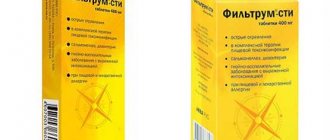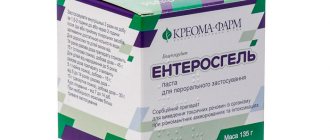How to use magnesium B6?
Since this microelement slowly accumulates in the body, magnesium B6 should be used for at least two months in a row - provided that the patient is under 40 years old and does not suffer from chronic diseases. Patients over 40 or with chronic pathologies need to take the medicine for at least six months.
Despite all the benefits of the drug for the body, there are conditions when its use is contraindicated:
- Individual intolerance;
- Phenylketonuria;
- Renal failure when creatinine clearance {amp}lt;30 ml/min;
- Fructose intolerance (for dosage forms containing sucrose);
- Insufficiency of the enzyme sucrase-isomaltase (similar);
- Glucose-galactose maladsorption syndrome;
- Use simultaneously with levodopa;
- Tablets should not be used in children under 6 years of age, solution - up to 1 year.
It is not recommended to take the medicine simultaneously with calcium supplements - as already mentioned, calcium reduces the absorption of magnesium.
Magnesia for children
Quite often Magnesia is used to treat
in children. For these purposes, the powder of the drug is used, which is diluted in 100 ml of warm boiled water. The dosage depends on the age of the child:
- 6-12 years – 6-10 g per day;
- 12-15 years – 10 g per day;
- over 15 years old – 10-30 g per day.
To determine a more accurate daily dose of Magnesia, you can use the following formula: 1 g multiplied by 1 year of the child (for example: a 7-year-old child can be given 7 g of Magnesia powder per day).
For constipation in children, magnesium sulfate can also be used in the form of medicinal enemas. For an enema, you need to prepare a solution of 20-30 g of powder and 100 ml of warm boiled water. The amount of solution for administration into the rectum, depending on the age of the child, is 50-100 ml.
Magnesia is prescribed intravenously or intramuscularly to children only for relief of emergency conditions (severe asphyxia or intracranial hypertension). In these cases, intravenous or intramuscular administration of Magnesia is used even for newborns.
Release form
Magnesium B6 is available in the form of tablets of 30 or 50 pieces per package. There are different packaging options - 30 and 50 tablets. The tablets are biconvex, oval, white.
Taking Magne B6 reduces the absorption of tetracycline antibiotics, so when taking them, the interval should be at least 3 hours.
Magnesium B6 is a combination product that combines magnesium lactate dihydrate and vitamin B6 - pyridoxine hydrochloride.
The need for such a supplement is explained by the fact that magnesium is known for its ability to be poorly absorbed in the body. Pyridoxine (vitamin B6) helps absorb the macronutrient. In this combination, magnesium takes the form of an organic salt that is well absorbed and does not irritate the gastric mucosa.
Together, these substances help the flow of metabolic processes and the retention of magnesium in cells.
After the drug enters the gastrointestinal tract, half of it is absorbed and enters the bones and muscles, and the remaining part is excreted through the urine by the kidneys.
And pyridoxine hydrochloride, through a sequence of reactions, takes on the active form of vitamin B6.
The tablets are convex in shape and covered with a white shiny coating.
The drug solution itself is brown in color, transparent, with a caramel odor.
The simultaneous use of drugs containing phosphates or calcium salts may impair the absorption of magnesium in the intestine.
When prescribing tetracyclines orally, it is necessary to maintain an interval of at least 3 hours between ingestion of tetracycline and magnesium B6.
Tablets weighing 0.2 g, 2 blisters of 25 tablets.
Pharmacological forms of the drug:
- biconvex oval tablets in a white film shell with a shiny smooth surface (10 pieces in aluminum foil and PVC blisters, 5 blisters per package);
- a transparent, brown solution for oral use with a distinct caramel odor (in 10 ml ampoules, 10 ampoules in a cardboard packaging insert);
- white oval biconvex film-coated tablets (15 pieces in blisters made of aluminum foil and PVC-PE-PVDC, 2 or 4 blisters per package).
Due to the fact that pyridoxine (in any quantity) inhibits the activity of levodopa, it is contraindicated to prescribe this drug in combination with Magne B6. This applies to situations when taking levodopa is not combined with taking drugs that suppress the activity of peripheral decarboxylase of aromatic amino acids existing in the L-form.
It is not recommended to take Magne B6 with drugs that contain Ca salts or phosphates (these drugs impair the absorption of Mg in the intestinal tract).
Since Mg preparations reduce the absorption of tetracyclines, at least a three-hour interval should be maintained between doses.
Treatment
Ambulance doctors will provide the necessary assistance and transport the patient to the hospital. The patient is admitted to the toxicology department.
Doctors will continue to lavage the stomach with a special medical probe. Taking rehydration solutions will replenish the water and electrolyte balance. If the antidote was not administered at home, this will be done in the hospital.
To stimulate the activity of kidney cells, a course of medications with a diuretic effect is prescribed. Diuretics cannot be taken on your own. The dosage is carefully calculated by the attending physician. The appointment takes place under strict medical supervision. It is also necessary to observe the regime of fluid intake into the body.
Children, pregnant women and people of retirement age require hospitalization.
Compound
A drug
contains: magnesium lactate 2-water, vitamin B6 (pyridoxine hydrochloride), excipients (sorbitol E 420, magnesium stearate E 470).
Magne B6 tablets are one of the effective remedies used for adults, children and pregnant women. The drug can be used for a variety of conditions of the body, diseases of the central nervous system. This remedy has a positive effect on metabolic processes, increases immunity, improves sleep, heart function, and liver function.
The drug contains:
- magnesium lactate 2-water;
- vitamin B6 (pyridoxine hydrochloride);
- Excipients.
Magne B6 tablets contain magnesium lactate dihydrate at a concentration of 470 mg/tablet. (equivalent to 48 grams of Mg), vitamin B6 (pyridoxine hydrochloride) content - 5 mg.
Heavy kaolin, carboxypolymethylene, sucrose, magnesium in the form of hydrosilicate (talc) and stearate, and acacia gum are used as auxiliary components.
Tablet shell composition: acacia gum, sucrose, titanium dioxide, trace amounts of magnesium hydrosilicate and carnauba wax in powder form.
The oral solution contains 186 mg of magnesium lactate dihydrate and 936 mg of magnesium pidolate (which corresponds to a total Mg content of 100 mg), 10 mg of pyridoxine hydrochloride.
Auxiliary components: sodium disulfite and saccharinate, cherry and caramel flavoring, purified water.
Composition of Magnesium B6 Forte (Antistress) tablet: 618.43 mg magnesium citrate, 10 mg pyridoxine hydrochloride, anhydrous lactose, magnesium stearate and hydrosilicate, macrogol 6000, hypromellose, titanium dioxide.
Interaction with other drugs
Magne-B6 is a medicine containing magnesium and vitamin B6. This is the most popular magnesium preparation in Russian-speaking countries. It is produced by the international pharmaceutical company Sanofi-Aventis. It is investing heavily in advertising Magne-B6. But, unfortunately, this increases the cost of the medicine for consumers.
However, Magne-B6 has substitutes that have the same composition. They work just as well and are much cheaper. In Russia these are Magnelis-B6 tablets. In Ukraine - the drug Magnicum produced by the Kyiv Vitamin Plant. It is advertised with the slogan "You will love being pregnant." Feel free to switch from Magne-B6 to one of these drugs, including during pregnancy. They give the same effect at a lower price.
Analogues of Magne-B6 tablets are Magnelis-B6, Magnicum, Magvit. They cost less, but help just as well.
If you are not too lazy to order supplements from the USA, then the daily dose of magnesium will cost 2-4 times less than Magnelis-B6 or Magnikum. There will be significant savings if you take magnesium tablets continuously or at least 3-4 weeks in a row. American preparations contain 200 mg of magnesium in each tablet.
Overdose of magnesium B6
In patients with normally functioning kidneys, an overdose of magnesium taken orally does not usually cause toxic reactions. In case of kidney failure, excess magnesium can cause poisoning, the symptoms of which are:
- nausea;
- vomit;
- ECG changes;
- decrease in blood pressure;
- hyporeflexia;
- CNS depression;
- disturbances of cardiorespiratory function (up to coma, respiratory paralysis and cardiac arrest);
- anuric syndrome.
The severity of overdose symptoms depends on the concentration of the trace element in the blood.
Treatment involves forced diuresis and rehydration therapy. For renal failure, peritoneal dialysis and hemodialysis are indicated.
If the kidneys are functioning normally, it is impossible to create an excess of microelements and water-soluble vitamins (B6) in the body: the excess is excreted in the urine. If kidney function is reduced, magnesium may accumulate in the body, which manifests itself:
- Drop in blood pressure;
- Nausea, vomiting;
- Decreased reflex activity, inhibition up to coma;
- Impaired breathing up to paralysis;
- Decreased urine output up to anuria;
- Heart failure.
Antibiotics from the aminoglycoside group sharply increase the toxicity of magnesium.
With a long-term overdose of vitamin B6, the following may occur:
- Impaired sensitivity, numbness of skin areas;
- Hand trembling;
- Loss of coordination.
These phenomena disappear after discontinuation of the medication.
An overdose of magnesium may cause diarrhea, but there will be no toxic reactions. However, in case of kidney failure, magnesium poisoning is possible.
The severity of symptoms depends on the concentration of the active substance in the blood.
In the practice of doctors, cases of overdose have not been recorded, but it is still important to follow the prescribed dosage of the medication. With increasing doses of the medicine, disturbances in the functioning of the stomach may appear, nausea and vomiting may occur. In some cases, allergic skin reactions may occur.
Preventive actions
If the patient takes magnesium-based drugs, it is necessary to undergo periodic tests for monitoring and adjust the doses of the drug taken, if necessary.
When prescribing medications, the doctor must tell them about the risks and possible consequences so that the patient knows the symptoms and can control his condition.
After stopping the medication, the patient can introduce foods rich in vitamins and microelements into his diet in order to maintain normal levels of these substances in the body and eliminate the need to take various dietary supplements and medications.
During pregnancy, it is important to undergo all preventive examinations and consultations on time, and donate blood for analysis to monitor the progress of pregnancy.
pharmachologic effect
Pharmacotherapeutic group: B vitamins in combination with minerals. The action of the drug is aimed at replenishing magnesium deficiency.
The drug very rarely causes side effects. Allergic (including skin) reactions are possible in no more than 0.01% of cases.
Sometimes taking Magne B 6 is accompanied by side effects from the digestive tract (flatulence, abdominal pain, diarrhea, nausea, vomiting), but it is impossible to determine the frequency of their occurrence based on currently available data.
Selling Features
You can purchase the medicine in stationary pharmacy chains or online pharmacies.
However, every user should know that today the sale of medicines through the World Wide Web is prohibited.
This restriction does not apply to cosmetic products, dietary supplements, vitamin-mineral complexes and other products that do not belong to the category of medicines. They can be sold online and delivered to the buyer.
Thus, it is possible to reserve Magnesium Diasporal 300 through an online resource and receive the drug at a conveniently located pharmacy, but it is impossible to legally order it along with home delivery. Also, you should not turn to shady companies, since in this case there can be no talk of any guarantees of quality and health safety.
The cost of a package with 20 sachets is in the range of 825 - 1,022 rubles. Each pack contains an annotation for the drug from the manufacturer.
Analogues of Magnesium B6
Before taking Magne B6, you should consult your doctor. The average course duration is one month. Treatment is stopped immediately after the Mg concentration in the blood is normalized.
The medicine is taken with meals 2 or 3 times a day.
If the drug is prescribed during pregnancy, the dose is selected individually by the attending physician.
Analogs of Magne B6 are the drugs Magnesium B6 Evalar, Magnelis B6, Magnicum, Magnistad, Magnefar B6, Magvit B6, Beresh Magnesium plus B6.
The price of analogue tablets is from 150 Russian rubles.
Magnesium is very important for children because it participates in various biochemical reactions of the body, improves the absorption of calcium and the tone of the walls of blood vessels, and normalizes the conduction of nerve impulses in the brain.
Magnesium deficiency is very closely related to stress. Experts consider Mg deficiency and stress to be interdependent processes that can aggravate each other.
Both acute and chronic stress lead to depletion of the intracellular Mg pool and its loss in the urine. This is due to the fact that in a stressful situation the body releases more adrenaline and norepinephrine, which contribute to the elimination of Mg from cells.
Magnesium deficiency often leads to a decrease in the ability to concentrate, memory impairment, convulsive seizures, impairment of consciousness and the coordination sphere (usually this manifests itself in the form of nystagmus, ataxia, tremor). Some children develop paresthesia and increased tendon reflexes.
In children of all ages, Mg deficiency (as well as stress) provokes an increase in blood pressure - one of the significant components of stress and changes the cerebroreactive reactivity of blood vessels towards a constrictor response.
Biochemical and clinical-neuropsychological studies, as well as reviews of Magne B6 for children, confirm that taking Mg drugs can curb the rise in blood pressure, increase stress resistance, improve behavior, memory and attention, normalize sleep, reduce anxiety, the level of synkinesis and aggression.
In accordance with the instructions, in pediatric practice the solution is prescribed from the age of one year, tablets - after 6 years, however, in the presence of neurological disorders, Magne B6 can be used from the first days of life. The dosage for an infant is calculated depending on his body weight.
It is very important that the composition of the drug (both in the form of a solution and in the form of tablets) includes organic Mg salts - lactate, citrate and pidolate - which are characterized by high bioavailability and practically do not cause side effects.
Magne B6 Forte, which is based on Mg citrate, is recommended for use in children with oxalaturia and acidosis, as well as in children with a shift towards acidosis: the drug is used to compensate for rapid nervous and mental exhaustion in patients with a neuroarthritic type of constitution and for the prevention of urolithiasis .
Reviews from doctors about Magna B6 are positive: experts consider this remedy to be indispensable in conditions where the patient’s body suffers from magnesium deficiency. It is especially important for children and during pregnancy. In addition, Mg preparations are the core of neurorehabilitation and therapeutic measures for pathologies such as attention deficit in children and hyperactivity.
Prescribing Magne B6 to children - reviews from doctors and mothers confirm this fact - can significantly improve the general condition of the child, reduce his aggressiveness, increase attentiveness, improve behavior, and school performance.
During pregnancy
Magnesium deficiency in the body complicates the course of pregnancy. Many common problems faced by pregnant women are caused by a deficiency of this mineral. Talk to your doctor about whether you should take Magnesium B6 if you experience the following symptoms:
- attacks of headache;
- backache;
- cramps, muscle spasms;
- constipation;
- irritability;
- insomnia.
Frequent pregnancy complications caused by a lack of magnesium in the body are preeclampsia and eclampsia. They occur in the second half or third trimester of pregnancy. First, the woman notices swelling, fatigue, and her blood pressure rises. If convulsions also occur, it means that preeclampsia turns into eclampsia. This is truly dangerous, because there is a threat of premature birth, rupture of the placenta, or even a stroke in the pregnant woman.
Why is magnesium tablets prescribed during pregnancy?
First of all, magnesium during pregnancy is prescribed to prevent complications - preeclampsia and eclampsia. What is preeclampsia and eclampsia is described above. Significant research has proven that taking magnesium tablets reduces the risk of these dangerous problems. Links to medical journal articles are provided below. You are less likely to need serious “chemical” medications for high blood pressure.
Indications for use of Magnesium B6
The indication for the use of Magne B6 is confirmed Mg deficiency (both isolated and associated with other deficiency conditions).
Symptoms of the fact that Mg enters the body in insufficient quantities are increased fatigue and irritability, sleep disturbances, rapid heartbeat, stomach and intestinal cramps, tingling sensation in the muscles, as well as spasticity and soreness.
Contraindications to the use of Magne b6 are:
- severe renal failure (conditions in which creatinine clearance does not exceed 30 ml per minute);
- impaired absorption of glucose and galactose, fructose intolerance, sucrose-isomaltase deficiency (only for the tablet form of the drug);
- simultaneous use of the antiparkinsonian drug levodopa;
- phenylketonuria;
- hypersensitivity to the substances contained in the tablets/solution.
In pediatrics, tablet forms of the drug are prescribed from the age of six; the solution in ampoules is allowed from the age of one.
Due to the risk of developing hypermagnesemia, the drug should be prescribed with caution to persons with moderate renal failure.
The benefits of prescribing Magnesium B6 relate, firstly, to a direct deficiency of the element in the body, which manifests itself, accordingly, in specific symptoms:
- convulsions;
- periodically occurring tingling sensations in the body;
- increased blood pressure;
- osteoporosis;
- depression.
Secondly, the harm of a lack of an element leads to unpleasant consequences, manifested in nonspecific symptoms:
- weakness, severe fatigue;
- increased nervous excitability and irascibility;
- anxiety attacks;
- irritability;
- sleep disorders;
- spasmodic pain in the muscles;
- rapid heartbeat;
- cracks in the corners of the mouth (jams);
- as well as when taking diuretics.
A deficiency of the macronutrient can cause harm to the functioning of the heart muscle and the associated risk of heart disease.
Magnesium B6 can be prescribed in case of diseases:
- anemia;
- vegetative-vascular dystonia;
- air and sea sickness;
- hepatitis;
- various skin lesions;
- leukopenia (low leukocytes in the blood);
- nervous system disorders;
- as well as for the problem of toxicosis during pregnancy.
Magnesium B6 will also help relieve symptoms:
- digestive problems;
- fibromyalgia;
- tinnitus (Meniere's disease);
- prolonged migraines.
The main contraindication to the use of magnesium-containing drugs is kidney pathology, which cannot ensure complete excretion from the body. As a result, an overdose is likely, the harm of which will manifest itself in nausea, vomiting, low blood pressure, breathing problems, and numbness of the extremities.
In addition, the drug is not recommended for use in the following cases:
- individual intolerance to its components;
- less than 1 year of age;
- simultaneous use of laxatives;
- diabetes - due to the presence of sucrose in the composition;
- use of tetracycline antibiotics;
- phenylketonuria: a congenital disorder of amino acid synthesis.
Indications for the use of the drug are considered to be various dysfunctions of the central nervous system, which manifest themselves against the background of magnesium deficiency in the body.
The drug has several contraindications for use:
- intolerance to the components of the drug;
- children under 6 years old;
- fructose intolerance;
- glucose-galactose deficiency syndrome.
With caution, the drug should be prescribed for diseases of the kidneys, liver, and also with other vitamins, especially those that contain a daily dose of magnesium and thiamine. This use increases the risk of side effects.
Pills
are used to prevent symptoms of magnesium deficiency and associated disorders, such as: irritability, anxiety, sleep disturbances, apathy, increased fatigue, pain and muscle spasms, tingling sensation.
It is contraindicated to take the drug
in case of individual intolerance to the components.
It is recommended to consult a doctor before use.
Interaction with other drugs
The health benefits of using the product are directly related to the properties of both magnesium and pyridoxine. The vital importance of magnesium in the tissues and cells of the body is manifested in the fact that the macroelement is a participant in most metabolic reactions and is beneficial as a regulator of the transmission of nerve impulses and muscle contraction.
Magnesium is also known for its beneficial properties in preventing cardiovascular diseases.
Normally, the element enters the body with food.
Its deficiency is a civilizational disease. Statistics show that a modern person receives only 10% of his daily requirement from the daily menu.
Poor diet leads to magnesium deficiency. The deficiency of the substance is also affected by increased physical and mental stress, which increases the need for it.
Pregnancy, the use of diuretics, antibiotics, oral contraceptives, as well as harm from sugar, caffeine, tobacco, and alcohol are factors in magnesium deficiency.
The same applies to stress, which includes a vicious circle: a decrease in magnesium due to nervous disorders intensifies them even more.
A moderate deficiency of the element in the blood serum is considered to be 12 - 17 mg/l; severe deficiency occurs below the threshold of 12 mg/l.
The classic set of symptoms of magnesium deficiency is the presence of anxiety, spasms, seizures and tics, and rapid heartbeat. Additional manifestations of the harm of a lack of an element are headaches, insomnia, increased irritability and frequent mood swings, chronic fatigue and cardiac arrhythmia - up to the risk of stroke.
Vitamin B6 in the composition of the drug tends to enhance its effect, helping magnesium to be more efficiently absorbed from the gastrointestinal tract and penetrate through cell membranes.
Vitamin B6, essentially a group of interconnected and jointly acting vitamins pyridoxine, pyridoxinal and pyridoxamine, tends to influence metabolism, including the nervous system. In addition, the vitamin is involved in the formation of red blood cells.
Pyridoxine also helps:
- absorption of proteins and fats;
- conversion of the essential amino acid tryptophan into niacin;
- prevention of various nervous and skin disorders;
- synthesis of nucleic acids that can prevent aging;
- reducing nighttime muscle spasms, calf muscle cramps, numbness of the hands;
- enhancing the diuretic effect;
- reducing blood glucose and reducing the need for insulin in diabetes.
Magnesium has also been given the name of a precious metal of beauty, which can be irreparably damaged if it is deficient: deterioration of complexion, the appearance of puffiness under the eyes, and the appearance of early wrinkles.
Magnesium B6 will be especially useful for women during menopause, as it helps cope with unpleasant symptoms. It is especially necessary to ensure that the daily norm - from 400 to 500 mg - is received during the onset of menstruation.
Interesting! It has been scientifically proven that magnesium deficiency tends to provoke a more acute passage of premenstrual syndrome with an increased need for chocolate, which contains this element.
Due to the active participation of magnesium in the process of childbirth, the female body especially needs this element and reacts especially sensitively to its deficiency.
All conditions associated with changes in hormonal levels - puberty, pregnancy, menopause - serve as signals for the need to increase magnesium nutrition.
With oral contraception, 40% of women experience magnesium deficiency after three months of use.
During the winter season, Magnesium B6 will also be useful for replenishing the beauty macronutrient, preventing harm from brittle bones and dry hair, which are especially aggravated during this period.
The winter months also affect hormonal balance, which affects a decrease in emotional levels, irritability, and depression; Depression is also a sad consequence of a lack of magnesium in the body.
Diets with limited vitamin and mineral composition can also cause harm by deteriorating the appearance of the skin and the appearance of wrinkles.
It is optimal to supplement healthy multivitamin complexes with products that serve as plant sources of magnesium - beans, chickpeas, bran, dried fruits and others.
To benefit from using the drug, you need to balance your menu with the properties of “magnesium” products: wheat germ, seaweed, barley porridge, cod, milk, wheat bran.
Therefore, it is better to start the morning with oatmeal, which will immediately replenish the daily magnesium diet by a third, and dried apricots, cashew nuts and almonds will add the remaining 2/3.
Magnesium B6 in the diet menu will also help rid the body of toxins.
Magnesium B6 for women will bring undoubted benefits for beautiful skin, slim figure and healthy hormonal levels.
The benefits of Magnesium B6 for men are unconditional, since the element is responsible for the production of testosterone, which, in turn, increases potency.
The undoubted value of this useful macronutrient is well known to athletes who expend a large amount of energy on training, as well as to those who engage in heavy physical labor.
Magnesium B6 is necessary for children for physical development. The period of growth and puberty requires a lot of consumption of useful macronutrients.
The drug is indicated for children with increased excitability, problems with sleep, fears, and anxiety. To benefit the functioning of the nervous system, Magnesium B6 anti-stress is prescribed for children.
For children, it is available in tablets or syrup.
When breastfeeding, taking Magnesium B6 will have a positive effect on the properties of mother's milk. When bottle feeding, it is also necessary to take into account the amount of magnesium in baby food.
The harm of element deficiency will be reflected in the following symptoms:
- increased nervous excitability;
- sleep disorders;
- irritability and fatigue;
- anxiety attacks;
- stress;
- muscle spasms;
- rapid heartbeat.
The beneficial properties of magnesium to promote a healthy pregnancy and the development of the placenta require the presence of a sufficient amount in the woman’s body.
In addition, bearing a child is often accompanied by harmful convulsions and increased nervous excitability: taking Magnesium B6 will help cope with such symptoms during pregnancy.
The benefit of the element is necessary to ensure the fetus has the normal formation of the building component of the tissues and organs of the body - protein, including the nervous system.
Important! The consequence of magnesium deficiency during pregnancy and childbirth can result in harm such as eclampsia, when the life of the mother and child is at risk due to increased blood pressure.
Magnesium takes a beneficial part in more than 200 biochemical reactions of the body. Satisfying the daily need for it is especially important on the eve of conception and in the first months of pregnancy due to the property of the element to ensure the regulation of the reproduction of nucleic acids in cells, thus being responsible for the transmission of genetic characteristics.
The property of Magnesium B6 in providing muscle relaxation will be useful in dosages prescribed by a doctor to reduce the tone of the uterus and the associated risks of miscarriage or premature birth, as well as relaxation of organs that are stressed in an interesting position of a woman. The anti-stress effect of the drug will also be beneficial in case of possible hyperexcitability of the nervous system.
Attention! According to statistics, 80% of women during pregnancy experience a deficiency of this useful element.
If the threat of miscarriage does arise, the course of taking Magnesium B6 is a month, after which a break is taken. However, the decision about the need for admission must be made by the attending physician.
Ideally, it would be useful to think about consuming the element before conception, but even taking medications in the early stages of pregnancy or in the second trimester will give the woman a feeling of comfort: Magnesium B6 normalizes stool, eliminates nagging pain in the abdominal area, stabilizes the emotional background, and improves sleep.
Important! Taking the drug is incompatible with the use of calcium and iron: the elements mutually weaken each other’s absorption.
Medicines and supplements containing magnesium may interact with other medications. With most drugs this interaction is negative, but with some it is positive.
Reviews of magnesium B6
Natalya Kashina, 28 years old, Tula
There was experience using Magnesium B6 for a child: he was then still 5 years old. The doctor prescribed a drug to relieve muscle tone in the legs. We took 1/2 ampoule twice a day for a course of 1 month. Pleasant smell and taste. At first I was worried that there would be no whims: but my worries turned out to be in vain: the syrup-like composition went with a bang. The only side effect was a slight relaxation of the intestines.
Rogov Alexander, 38 years old, Krasnoyarsk
I took Magnelis B6 for seasonal vegetative-vascular exacerbation - for a month, three times a day with every meal. The effect is mild, the improvement is not drastic: gradually I began to sleep better and get up easier, less tired and irritated. Works well as an additional product.
Antonina Yuryeva, 26 years old, Omsk
I regularly take Magne B6 Forte as prescribed by a cardiologist to prevent tachycardia. After taking it, calm appears, irritation goes away, and the pulse returns to normal. The mild laxative effect does not cause discomfort. Despite the fact that the drug is not cheap, it justifies the price with quality.
Side effects
The harmful side effects of magnesium-containing drugs are rare and are usually manifested by allergic reactions, stool disorders, nausea, tingling and numbness of the extremities, as well as abdominal pain, nausea, vomiting, flatulence, and constipation.
Taking the drug is incompatible with taking calcium: this combination not only threatens poor absorption of each element, but can also be harmful for the formation of kidney stones and deposits in the joints, and aging of blood vessels.
Attention! It is necessary to drink the drug strictly in accordance with the prescription and dosage in order to avoid the harmful effects of an excess of the mineral (when taking more than 200 mg per day), which in critical cases can lead to respiratory paralysis and cardiac arrest.
Symptoms
A lack of magnesium leads to the development of the following problems:
- Impaired calcium absorption, brittle bones and poor dental health.
- Headache and dizziness.
- Loss of sensation in the legs and arms, tingling, numbness.
- Tendency to develop seizures.
- Decreased immunity.
- Insomnia, high fatigue, irritability.
All these signs are not specific, but when they appear, the doctor recommends using products containing magnesium.
However, improper use of drugs can lead to an overdose of this element and the development of problems in the functioning of organs.
Pharmacodynamics and pharmacokinetics
Magnesium (Mg) is an important biogenic element, which is present in significant quantities in all tissues of the body, is a cofactor in most metabolic processes and ensures the normal functioning of cells.
In particular, this element is necessary for the biotransformation of creatine phosphate into ATP - nucleoside triphosphate, which plays the role of a universal energy supplier in living cells of the body.
Without magnesium, protein cannot be synthesized normally. The element takes part in muscle contraction (including maintaining the normal function of the heart muscle), regulates the transmission of impulses in nerve fibers, promotes vasodilation, stimulates the secretion of bile, increases the motor activity of the intestinal tract, which in turn helps remove cholesterol from the body.
Magnesium enters the body with food. Its deficiency can be primary (due to hereditary pathologies) or secondary. Secondary magnesium deficiency is usually associated with:
- with a nutritional disorder (diet poor in vitamins and minerals, exclusively parenteral nutrition, chronic alcoholism);
- with an increase in a person’s need for a trace element during intense physical or mental activity, during periods of intense growth, during pregnancy, during stress, excessive losses of Mg through the kidneys (for example, with chronic pyelonephritis, abuse of diuretics, treatment with cisplatin);
- with impaired absorption of Mg in the gastrointestinal tract due to hypoparathyroidism, chronic diarrhea, etc.
Vitamin B6 (pyridoxine) improves metabolic processes, including in brain tissue. As a result, brain performance increases, mood and memory improve.
In addition, the presence of pyridoxine in the composition of Magne B 6 improves the absorption of Mg from the digestive tract and its distribution in the cells of the body.
If the serum concentration of Mg is in the range from 12 to 17 mg/l, they speak of moderate Mg deficiency. An indicator not exceeding 12 mg/l is evidence of severe microelement deficiency.
No more than half of the Mg dose taken orally is absorbed in the digestive tract. 99% of the microelement is located in the intracellular space, while about 66% of intracellular Mg is distributed in bone tissue, the remaining amount is in striated and smooth muscles.
Mg is excreted mainly in the urine (about a third of the dose taken).
First aid
Acute poisoning requires the help of doctors; it is recommended to immediately call an ambulance. Before the brigade arrives, measures must be taken to reduce toxic exposure:
- Gastric lavage will reduce the amount of poison and its effect on the mucous membrane. The victim should drink 2-3 liters of warm water, which will provoke a gag reflex. It is permissible to induce it yourself by pressing your fingers on the root of the tongue.
- It is advisable to administer an antidote at home - calcium gluconate or calcium chloride.
- If mouth and diarrhea are present, the process cannot be stopped artificially. The body gets rid of toxic compounds on its own.
- To prevent dehydration, the patient should drink a lot of mineral water or Regidron solution.
- A person who has fainted should lie on their side. Until the doctors arrive, vigilantly monitor his condition.
First aid provided before doctors arrive often saves lives and prevents the development of complications.
special instructions
Ampoules with Magne B6 solution are self-breaking (each has 2 marking rings and a break line) and does not require the use of a nail file.
To open the ampoule, take it by the tip, having previously covered it with a piece of fabric, and with a sharp movement break it off first from the pointed end, then from the opposite. The end opened first is directed at an angle into a cup of water so that the tip of the ampoule, which is broken off second, is not above the cup.
After the second tip of the ampoule is broken off, the solution will flow freely into the glass.
Patients with diabetes need to remember that film-coated tablets contain sucrose as an excipient. Therefore, the dosage form that is more preferable for them is a solution that does not contain sugar.
In case of malabsorption syndrome (impaired absorption) and severe magnesium deficiency, treatment should begin with intravenous administration of Mg preparations.
If a patient has a concomitant calcium deficiency, the Mg deficiency is corrected before taking dietary supplements or medications that contain Ca.
The solution contains sulfite, a substance that can cause or intensify hypersensitivity reactions, including anaphylactic reactions (especially in patients at risk).
Taking high (exceeding 200 mg/day) doses of pyridoxine over several months/years can cause the development of sensory axonal polyneuropathy, which is manifested by symptoms such as tremor, numbness and disorders of proprioceptive sensitivity of the distal arms and legs, gradually manifesting sensory ataxia (impaired equilibrium).
Disorders of this kind are usually reversible and disappear after stopping taking vitamins.
- Take the drug with caution if you have diabetes, since the outer shell of the tablet contains sucrose.
- The tablets are intended only for adults and children over 6 years of age.
- Before taking the medicine, you should study the instructions for use.
- Children under 6 years of age are recommended to take other forms of the drug: injections, suspension.
- It is prohibited to exceed the daily dose of the drug.
- Do not take the drug without first consulting your doctor.
- If after 2 weeks of taking the medicine there are no positive results from the treatment, tell your doctor.
For children
In Western countries, Magnesium B6 tablets are often prescribed to children who suffer from attention deficit hyperactivity disorder. Magnesium supplements calm these children, improving their behavior and learning. The more unhealthy foods a child or teenager eats, the lower their levels of magnesium in their blood plasma and red blood cells.
This leads to an increase in body weight and heart rate. The foundations are laid for cardiac arrhythmia and obesity, as well as other health problems that will manifest themselves after reaching adulthood. They can be partially compensated by taking Magnesium B6 tablets and their analogues, but you cannot do without switching to a healthy lifestyle.
| Age | Daily dose, mg |
| 1-3 years | 40-80 |
| 4-8 years | 130 |
| 9-13 years | 240 |
Representatives of alternative medicine prescribe magnesium to hyperactive children in a higher daily dose - 12 mg per 1 kg of body weight.
What are the symptoms of magnesium deficiency in a child’s body?
A lack of magnesium in a child can cause many of the same symptoms as in adults. These are nervousness, irritability, poor sleep, constipation, severe bronchial asthma or diabetes. If a child complains of leg cramps, then this problem is most likely caused by a magnesium deficiency and not by any other reasons.
Is it possible to give Magnesium B6 to children?
Children can be given magnesium tablets, which are sold at pharmacies, as well as supplements, which you can order from the USA through the iHerb store. Considerable experience has been accumulated which shows that magnesium preparations do not cause harm to children aged 3 years and older. They cannot have anything more serious than diarrhea from an overdose of magnesium. Of course, if the kidneys are working normally.
If you want to give Magnesium B6 to an infant or a child 1-2 years old, consult your doctor. You should not rely on information from the Internet in this matter. The results of serious studies of the effect of magnesium supplements on very young children have not yet been published.
Why should children take magnesium?
Symptoms of magnesium deficiency in the body in children are listed above. They can be alleviated, or even completely eliminated, with the help of magnesium supplements. Moreover, it makes sense to use Magne B6 tablets or their analogues. There is no need for painful injections. Except in rare cases when emergency medical care is required.
Magnesium is often prescribed to children to alleviate ADHD, bronchial asthma or diabetes. You should not expect that the drug Magne B6 or its analogues will work a miracle in the treatment of these diseases. Perhaps the child has an overwhelming academic workload, frequent family scandals, or is being bullied at school. In such cases, magnesium tablets will definitely not help without eliminating the underlying problem.
How to give Magnesium B6 to a child?
Magnesium preparations in tablets saturate the body of children and adults well with this mineral. In the vast majority of cases, there is no need for painful injections. By the way, the same goes for calcium and vitamins. Tablets - yes, injections - no. If the doctor insists on injections without serious reasons, consult another specialist.
What is the dosage of Magnesium B6 tablets for children?
Magnesium dosages for children are presented in the table above. You can also calculate the appropriate dosage based on the child’s weight - 4-12 mg of magnesium per 1 kg of body weight. Magne B6 tablets, as well as their analogs Magnelis B6 and Magvit (Ukraine), contain magnesium lactate dihydrate 470 mg. This is equivalent to only 48 mg of “pure” magnesium per tablet, rather than 470 mg.
What vitamins for children contain magnesium, calcium, and zinc?
Storage conditions
The drug should be stored out of the reach of children and direct sunlight should be avoided. You can buy the medicine without a doctor's prescription.
Over the counter.
Magne B6 No. 50: in a place protected from moisture and light, out of reach of children, where the temperature is maintained at up to 25 degrees Celsius.
Solution: in a place protected from light at temperatures up to 25 degrees Celsius.
Magne B6 Forte: at temperatures up to 30 degrees Celsius. Keep away from children.
In a dry place, protected from light, at a temperature not exceeding 25 C.
Magnesia in physiotherapy
Magnesia is used for some physiotherapeutic procedures:
- compresses - a 25% solution is used, the compress is applied to the desired area for 6-8 hours, then the skin is washed with warm water and lubricated with a rich cream (since magnesium sulfate has a drying property);
- electrophoresis - can be performed using different methods; a 20-25% solution is used to carry it out;
- medicinal baths - dry magnesium sulfate powder is used, which is dissolved in water; The water level in the bath should not reach the level of the heart.
Compresses with Magnesia have a warming property and increase blood flow to the skin. They can be used to treat infiltrates after injections, diseases of the joints and muscles.










